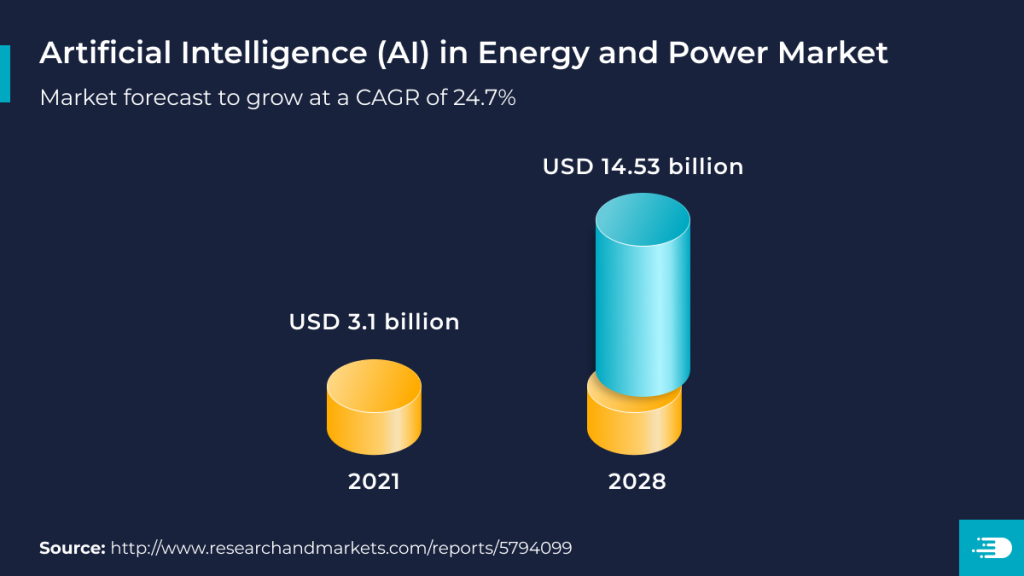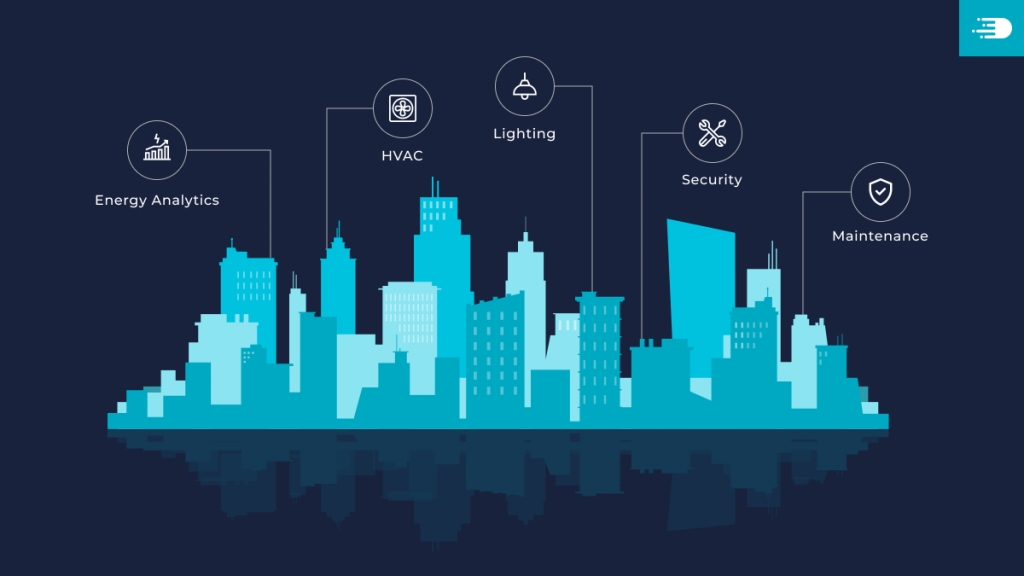Introduction:
The influence of artificial intelligence (AI) in the smart building energy management sector is nothing short of revolutionary. In a time where saving energy and efficient energy use are paramount, AI emerges as a key player in reshaping the energy landscape. From demand response management to predictive maintenance and smart homes, AI is revolutionising how we produce, distribute, and consume energy. This article explores what AI can do in the smart building energy management sector and the critical role data plays in accelerating this transformation, leveraging smart technologies for enhanced energy monitoring systems.
The Evolution of the Energy Sector:
David Groarke, managing director of Indigo Advisory Group, presented a compelling narrative that provided a profound understanding of the energy sector and the current trends reshaping this industry.[2]
Restructuring Era (1970s-1990s): This period witnessed the power sector undergoing significant restructuring, coinciding with the emergence and increasing prominence of renewable energy sources. The sector shifted its focus towards diversifying the energy mix and exploring cleaner alternatives.
Digitisation Era (2000s-2020): From the turn of the millennium to the present time, the energy sector experienced a phase of digitisation. Advancements in technology facilitated the digital transformation of various processes and systems within the sector. This digitisation served as the foundation for the energy transition, allowing for improved efficiency, data management, and the integration of renewable energy into the grid.
Automation Era (Starting in 2020): The present era marks the advent of automation, which the power of AI has amplified. Automation, powered by AI technologies, is poised to play a pivotal role in driving the achievement of net-zero goals. It enables intelligent decision-making, optimisation, and automation of energy systems. It facilitates the transition toward a sustainable and low-carbon future, enhanced operational efficiency, grid optimisation, demand response, predictive maintenance, and effective integration of renewable energy sources.

AI’s Immense Promise in the Energy Sector
Demand Response Management:
Demand Response Management (DRM) plays a crucial role in optimising electricity consumption and ensuring the stability of the electrical grid. It involves real-time adjustments in electricity usage to balance supply and demand, reduce peak demand stress, and prevent costly infrastructure upgrades. AI takes DRM to the next level by enabling real-time responses to shifts in energy demand. By predicting and managing demand fluctuations, AI enhances energy efficiency, reduces costs, and facilitates the transition to renewable energy sources. Studies by the International Energy Agency (IEA) have shown that AI-based demand response programs can reduce peak electricity demand by 10% to 20%.[2]
Predictive Maintenance:
AI empowers energy companies to predict equipment failures and maintenance needs by analysing extensive data sources such as usage stats, weather data, and historical maintenance records. Consequently, through machine learning, AI systems can anticipate breakdowns before they occur. This proactive approach not only reduces downtime but also lowers repair costs and significantly enhances infrastructure reliability. This proactive approach to maintenance can reduce downtime by up to 50% and decrease maintenance costs by 10% to 40%.[2]
Smart Homes and Buildings:
AI, in conjunction with smart meters and IoT devices, transforms homes and buildings into intelligent, energy-efficient ecosystems. These systems continuously monitor energy consumption in real-time, allowing AI to make data-driven decisions for optimising energy utilisation. For example, AI can automatically adjust heating and cooling systems based on user preferences, occupancy patterns, and real-time weather conditions. Consequently, this leads to significant energy savings and improved comfort. Moreover, the ability to adapt to changing environmental conditions not only optimises energy use but also enhances the overall user experience.

Challenges of AI in the Energy Sector
While AI holds immense promise in the energy sector, there are several challenges to overcome. These include the upfront costs associated with AI implementation, data security concerns, and the shortage of trained AI professionals with expertise in both energy and AI technologies. Moreover, addressing these issues is crucial for realizing the full potential of AI in this field. In particular, overcoming the skill gap and securing data are essential steps towards harnessing AI’s capabilities effectively. The energy sector deals with sensitive data, including customer and operational details. Ensuring the security of this data is paramount, and AI systems must be protected against cyber threats and breaches. Compliance with data privacy regulations, such as GDPR, adds more complexity. Addressing these challenges is crucial to realising the full potential of AI in the industry.
The Future of AI in the Energy Industry
The evolution of AI in the energy sector is evident across different eras – from restructuring to digitisation and now to automation. The automation era, fuelled by AI, is poised to play a pivotal role in achieving net-zero goals and driving a sustainable and low-carbon future. AI is contributing to predictive maintenance, energy trading, load forecasting, renewable energy generation, and data generation and anomaly detection. Its impact is felt across various aspects of the industry, making energy production and consumption more efficient and sustainable.
The Key to Unlocking AI’s Potential
To fully harness the power of AI in the energy sector, data quality and availability are paramount. AI systems thrive on large and diverse datasets, and data quality and consistency are essential. Data privacy and security, data accessibility and sharing, ethical considerations, continuous data updates, and data interpretability and explainability are crucial aspects that must be addressed to leverage AI effectively.
Data Dynamics Advantage
The Data Dynamics unified data management platform solves these data-related challenges. It provides a comprehensive set of tools for structuring, securing, and managing data, enabling energy enterprises to optimise AI model training and achieve better data utilisation.
Conclusion
AI’s role in energy management is transformative and holds immense promise for a more sustainable and efficient energy landscape. Overcoming challenges and leveraging data effectively are vital steps in realising AI’s full potential in the industry. With the right tools and strategies, the energy sector can lead the charge in innovation and environmental responsibility. AI will also contribute to carbon capture and storage efforts, thereby aiding in the fight against climate change. Furthermore, this involvement will enhance the effectiveness of environmental strategies, ultimately leading to more sustainable practices and reduced global warming impacts. The era of AI-powered energy management is upon us, and the possibilities are limitless.

